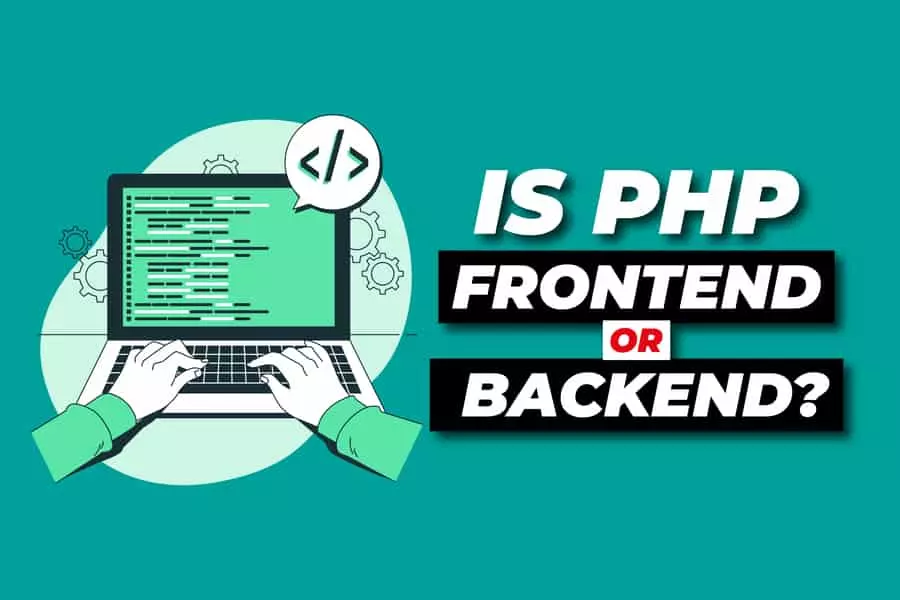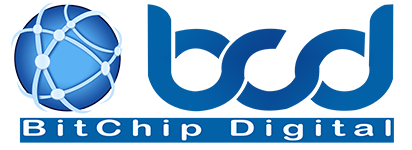
As a beginner programmer, you must be wondering, is PHP frontend or backend? Computers are becoming increasingly sophisticated, and so are the programming languages. PHP is one of the world’s oldest and most used programming languages.
If you are to work in programming, you are bound to use PHP at some point. It is most common in web development and apps.
This language has many uses and advantages that you must be aware of as a programmer. Let us take a closer look and see what you ought to expect;
Is PHP Frontend Or Backend?
PHP is a backend programming language that is not so adaptable that you would use it for frontend coding. It is part of the LAMP stack that programmers use to create web-based applications.
The only use of PHP in frontend development is to send HTML, JavaScript, or CSS to the browser. Its best use will be in computations in servers and managing data.
What Is PHP and What Are Its Uses?
There are numerous programming languages used actively on apps and websites all over the planet. Java, PHP, CSS, Python, and JavaScript are some of the most common. Each of these languages has specific characteristics that make it suitable for a specific task.
PHP is almost exclusively for web development, and when used in apps, it always deals with the internet or a server. PHP is a programming language that runs on servers for most browsers.
Some PHP code runs in the background when you search for a resource on the internet. All files with PHP content have a .php extension, and you can look into WordPress to see some examples.
You will see extensions like login.php, settings.php, load.php, and so on, and they tell you what the code does.
A common use for PHP is helping users log into and out of web pages. When you go to a login page, it will be HTML or another language.
Once you enter your credentials and click login, it will send a request to the server. PHP will access the server to check if the credentials are correct and log you in. PHP also loads the content on most websites.
All the content on websites is in databases. PHP will work in the background to retrieve the data so that HTML can display it to the user as dictated by the programmer. PHP is also useful in extending websites to make them perform better.
PHP is the backbone of web development and is a crucial skill for any programmer. Even mobile apps have connectivity to the internet, so you need a reliable server language. PHP will be perfect for a small-scale project, preferably a website with a few thousand users.
When dealing with more data, you will need a more powerful language, preferably Python. PHP is a derivative of other programming languages; thus, it has many loose ends in structures and usage.
Programming projects often involve more than one programmer; this might be a problem with PHP. It isn’t modular, so it might be challenging to divide the workload. Its flexibility might also increase the chances of errors.
What Are The Advantages Of Using PHP?
There are over 10 programming languages to choose from, and you must be wondering why PHP. It is not that extensive, and you might imagine it is not good for you. If you need some incentive, here are some benefits that PHP offers a user or programmer;
It is very common
One of the most important reasons to learn PHP is that it is all over. Over 35% of websites on the internet use PHP in the backend.
WordPress is the largest and most popular content management system, and it makes people love PHP.
This widespread use makes accessing PHP material like IDEs and others easy. You will also have an easier time dealing with compatibility problems.
This is because most systems already exist in PHP, so you will not need many changes to sync them.
Great for getting a job
Python is the most job-competitive programming language, but PHP isn’t that far behind. Numerous web development companies use PHP. This means you will have numerous options for employment, and it will be easier to get a job.
Most companies use WordPress and other popular content management systems since they allow clients to update information.
This saves the companies the hustle of updating user content; thus, it increases efficiency and makes PHP a valuable skill.
PHP offers speed; you can use almost any language to create a content management system. You could create a WordPress site using premade plug-ins and templates in about a week.
It is easy to learn
Comparing it to languages like Java or C++, PHP is relatively easy to learn. You will have an easier time learning and need less time to be job-ready. Going back to its popularity, you will have a lot of educational content.
Thousands of websites and YouTube videos could help you learn PHP. PHP has a large support community, and should you get stuck; there is a big chance you can get a fix for your problem.
Most developers know PHP, and they don’t even use it. Such people can help the learning process, and you will land a job in no time.
It offers freedom and flexibility.
PHP gives programmers much freedom, which is advantageous but can also be problematic. It is not a typed language, so you don’t have to define data types while coding. You have many different ways of creating the same functionalities.
Integration is another advantage PHP offers you. You can use it with just about any database with minimal changes.
You can connect to several databases without stretching your code of devices. This makes it perfect for large-scale projects that need several servers to work.
It has many Frameworks.
PHP has a lot more frameworks than most languages. Frameworks are existing functionalities that complete specific tasks, like shortcuts. This allows beginners to create pretty significant applications.
The frameworks do most of the work, and the programmers get what they need. You can use functional and procedural programming with PHP. You can even use classes and create object-oriented code.
Problems Programmers Experience When Using HTML
PHP is a nice programming language, but there are reasons some programmers avoid it. Most people are learning Python and Java, so we need to see some problems you will experience with PHP. Let’s get into the details;
Poor Design
One of the advantages of PHP is that it is easy to learn and offers a lot of freedom. This is a big advantage, but it can be a problem since too much freedom leads to poor language design. PHP takes its syntax from many other languages, which can be inconsistent.
PHP is also weakly typed, an advantage when learning but not in use. This lack of data types could lead to many bugs that are difficult to resolve.
It is too easy to make mistakes.
PHP is open, and many ways of creating the same end product exist. Many possibilities mean there are more chances of a programmer making a mistake. This is even more challenging when looking through someone else’s code.
As such, the language is rather hard to debug, and it is easy for mistakes to go unnoticed. Such poor designs might complicate the back end of a system, especially if it has many programmers working on it.
Scalability
PHP is not suitable for really big applications that use big data. It can work for medium-sized or small projects, but PHP gets difficult to model when dealing with millions of users. This is because PHP is not modular, and there could be many mistakes and bugs.
When dealing with big data or large applications, it would be best to use Python or another heavy-duty programming language.
Security
Regarding security, each language has its weaknesses, but PHP might have a bigger challenge. PHP is open-source, and it is not compiled, and this gives it some security vulnerabilities.
The language is not the issue; the problem is the high risk of bad code. The many bugs and mistakes in the code could very easily lead to a data breach. This is not an eventuality you would want to risk on your website.
Conclusion
This article must have been helpful if you were wondering, is PHP frontend or backend? PHP is a popular programming language for web developers and has many advantages. It has a lot of support, is easy to learn, and has many job opportunities.
PHP is best for backend programming, and it works with many languages. It is unsuitable for large-scale projects, so its flexibility allows programmers to use it with other programming languages. It can be a helpful asset, especially to an aspiring web developer.
